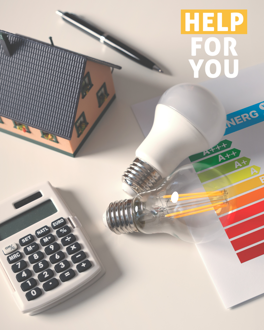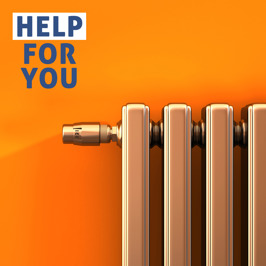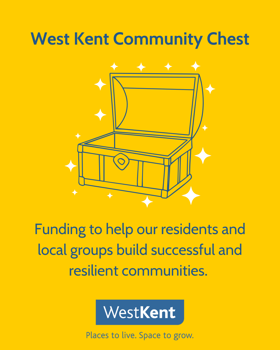With rising energy prices, you might be worried about how you’re going to stay warm and afford your other household bills.
![]()
There are a lot of things you can do to save money on your energy bills.
We have a dedicated fuel efficiency service to help you manage rising energy costs. Our aim is to provide practical, personalised advice that makes homes warmer and bills more affordable. Please get in touch, we can help. Call 01732 749400 or email help@wkha.org.uk
Here's how we can support you:
-
One-to-one support from our Fuel Efficiency Advisor
Our specialist advisor will work directly with residents experiencing fuel hardship, offering tailored guidance and home visits where needed.

-
Help with energy debt and tariffs
Support with negotiating payment plans, switching to better tariffs, and accessing supplier hardship funds.

-
Referrals to external schemes
We’ll connect you to national and local initiatives, including:
- Warm Home Discount
- Energy Company Obligation (ECO)
- Fuel vouchers for prepayment meters
- Charis Grants and supplier-specific hardship funds.

-
West Kent Community Chest
Where needed, we can refer you to West Kent’s Community Chest for items such as rugs or heaters to help keep your home warm.

-
Help with joining the Priority Services Register
The Priority Services Register helps utility companies, including energy suppliers, electricity and gas networks look after customers who have extra communication, access or safety needs.
It helps suppliers to tailor our services to support households who need extra help with everyday energy matters like bills, and also in the unlikely event of a power cut, gas or water supply interruption.
We can help you register for extra protections during outages or emergencies.
It's free to join, and you could be eligible for the Priority Services Register if:
- You need to be supported in a particular way
- You would struggle to maintain your well-being if you lost your energy supply for any amount of time
- You’re of pensionable age
- You are disabled
- You are chronically ill or have a long-term medical condition
- You have hearing or visual impairment or other communication needs
- You have children under the age of five living with you
- You have a mental health condition that causes you difficulty in understanding your bill
- You cannot top up your pre-payment meter due to injury
- You need extra support due to temporary circumstances.
Find out more information and join on the Priority Services Register website.
-
UK energy company support
Energy suppliers across the UK offer a range of schemes to help customers in financial difficulty or with specific vulnerabilities. These include grants, discounts, priority services, and energy efficiency support.
When you apply for a grant, you'll have to provide detailed information about your financial situation in your application. Contact us if you need help completing a budget calculator.
Supplier-specific hardship funds
Supplier
Support offered
British Gas
Energy Support Fund – grants up to £2,000 for energy debt
E.ON Next
E.ON Energy Fund via Charis Grants – help with energy debt and essential appliances
EDF Energy
EDF Customer Support Fund – grants and fuel vouchers
Octopus Energy
Octo Assist Fund – tailored support including payment plans and emergency credit
OVO Energy
Extra Support Package – free heated throws, tailored help, and £56m in support
Scottish Power
Hardship Fund – grants for energy debt and budgeting advice
SSE
SSE Priority Assistance Fund – help with bills and energy efficiency
Utilita
Utilita Community Fund – support for vulnerable customers and emergency top-ups
Universal support schemes
- Warm Home Discount: £150 off electricity bills for eligible low-income or pension-age households.
- Priority Services Register (PSR) Free service offering extra help for customers with health conditions, disabilities, or communication needs.
- Fuel vouchers: Emergency vouchers for prepayment meter users via local councils or charities.
- Energy Company Obligation (ECO) Free or subsidised insulation and heating upgrades for low-income households.
How to apply
- Visit your energy supplier’s website or call their customer support line.
- Use Charis Grants to apply for supplier hardship funds.
- Contact Citizens Advice or National Energy Action for guidance and referrals.
Additional help
- Budgeting and debt advice: StepChange, MoneyHelper, and local welfare teams.
- Local authority support: Household Support Fund and emergency assistance schemes.
Here are some ways you can reduce your energy costs:
-
Top tips
If you can’t change your provider at the moment, or you run on a meter, there are still lots of things you can do to keep your bills down.
See our top tips for saving on your energy bills
If you're struggling it's really important that you speak to us. Email help@wkha.org.uk or call 01732 749400.
-
Available discounts
Warm Home Discount
You could get £150 off your electricity bill under the Warm Home Discount Scheme. If you’re eligible, your electricity supplier will apply the discount to your bill. The money is not paid to you.
You may be able to get the discount on your gas bill instead if your supplier provides you with both gas and electricity and you’re eligible. Contact your supplier to find out.
You could qualify for the Warm Home Discount Scheme if:
- you get the Guarantee Credit element of Pension Credit
- are on a low income and have high energy costs
Cold Weather Payments
You may get a Cold Weather Payment if the average temperature in your area is recorded as, or forecast to be, zero degrees celsius or below over 7 consecutive days.
You’ll get £25 for each 7 day period of very cold weather between 1 November and 31 March.
You could qualify for Cold Weather Payments if you receive certain benefits or Support for Mortgage Interest.
Winter Fuel Payments
If you were born on or before 26 September 1955 you could get between £100 and £300 to help you pay your heating bills. This is known as a ‘Winter Fuel Payment’.
You will get your Winter Fuel Payment automatically (you do not need to claim) if you’re eligible and either:
- get the State Pension
- get another social security benefit (not Housing Benefit, Council Tax Reduction, Child Benefit or Universal Credit)
-
Switching your provider
Energy providers, like insurance companies, change their prices and can often lead to you paying more than you need to for your household bills.
Switching providers might mean you get a better deal. Energy providers offer a range of different tariffs, so it's important you know which is the best and most suitable one for you and your family.
- Fixed/capped tariff – this means the cost of energy won’t go up, unless you use more or less than predicted. This is usually on a contract for 12 months.
- Variable/standard tariff – the cost of your energy is subject to change and can go up at any point and are often more expensive than fixed/capped tariffs, but you aren’t tied into a contract.
- Prepayment meters – you have to pay as you go.
- Green tariff – the eco friendly option where your energy comes from renewable sources such as wind or solar. They are often more expensive, but they do reduce your carbon footprint.
You should use a comparison site to find out which provider can offer you the right tariff at the best price.
-
Energy tariff
Energy plans come in fixed and variable rates. Fixed rates offer price stability, while variable rates can fluctuate. Use trusted comparison sites like MoneySavingExpert and Uswitch to find the best deal and switch easily.
Consider getting a smart meter. They track your real-time energy usage, helping you understand where your money goes and how to cut back.
You could also request an in-home display from your energy provider to monitor daily spending.
-
Prepayment meters
Temporary credit if you can’t afford to top up your meter.
If you've run out of gas or electricity, your energy supplier should give you temporary credit if you can't top up, for example because:
- you can't afford it
- you're having problems topping up
Your supplier might add the temporary credit to your meter automatically - if they don’t, you should ask for it as soon as you can. You can check your supplier’s website to find out how to get temporary credit.
If you need extra temporary credit, you should explain your situation to your supplier. They might give you extra temporary credit if you’re:
- disabled or have a long term health condition
- over state pension age
- struggling with your living costs
You’ll have to pay any extra temporary credit you get back - you can agree how to pay it back with your supplier.
If you need a normal meter
Prepayment meters can be more expensive than normal meters. Your supplier has to replace your prepayment meter with a normal meter (one that lets you pay for energy after you use it, rather than before) if you have a disability or illness that makes it:
- hard for you to use, read or put money on your meter
- bad for your health if your electricity or gas is cut off.
